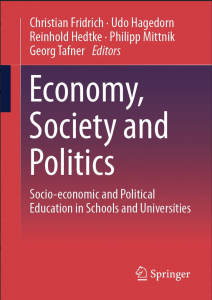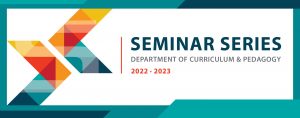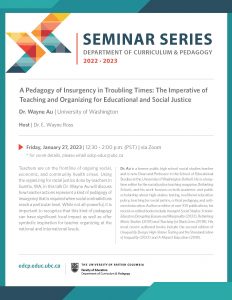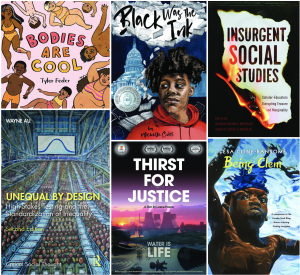Critical Education Special Issue – Call for Submissions
CRITICAL HUMANISM AND PROBLEMS OF CHANGE
Deadline for Submissions: December 15, 2023
Submission Types: Empirical and theoretical papers; interviews; practitioner field reports, experiential descriptions, or teaching examples
Review Process: All submissions of scholarly articles will be peer-reviewed. Interviews and field reports will be reviewed “in-house.”
Philosophical Overview/Perspective: Institutions once designed to ensure democratic participation by limiting governing power are instead used to manipulate the commons while attacking group solidarity marginalizing the most vulnerable in societies. Capitalist austerity measures and identity politics built into bad-faith legislation ensure antagonisms distract from democratic educational possibility (Ross & Vinson, 2013; Sondel, 2015). The results are populations divided, which secures worker subservience to existing structures of power or domination. Resultant social tensions keep society distracted, precluding democratizing agency. Schooling and schooling experiences reflect the acceptance of cultural narratives where societies live out the capitalist status quo and a vertically aligned social hierarchy (Rodriguez, 2008). The miseducation of students becomes a means to, at best, maintain hierarchy, but more insidiously, becomes an ideological lever for actively legitimizing dehumanization. However, critical educators fight against these alienating conditions as students and teachers direct knowledge, exchanges, and personal agency toward more democratic civic participation to secure human freedom and dignity (Freire, 2018; hooks, 2014; West, 2004).
In this special issue, we seek empirical and theoretical papers, interviews (with organic intellectuals, activist students or teachers, education workers committed to their community, and community members striving for more equitable schools and societies), practitioner field reports, and book reviews that take a critical humanist approach to education and the social world. By critical humanism, we are referring to ideas, research, and approaches that can help students and educators take pragmatic approaches toward promoting human liberation from conditions that enslave individuals and ensure the conditions for democracy. This may mean demonstrating more complex connections between the classroom to society, or ways critical educators create the conditions for a more just world. We are interested in scholarship that describes teacher and student agency within the current political climate and perspectives that serve as a counterpoint to vertical social hierarchies. Examples may include, but are not limited to social, historical, and political analyses; class relations in society, conflict resolution, dismantling censorship mechanisms that regulate human possibility and experience; teacher work within and as part of their communities; student, teacher, and community solidarity responding to oppressive conditions and/or legislation; analysis of artifacts, discourse, and culture; or research on, transformational civic practices or engagement; applications of critical or cultural frameworks to educational phenomena; anti-fascist, decolonial, and anti-oppressive approaches; innovations that help facilitate opportunities for emancipatory social transformation through critical education and praxis. Contributions related to activist communities transforming ideology, social conditions, and teaching conditions, among LGBTQ+, Indigenous, feminist, racialized, and other minorized groups are encouraged.
Submission may also relate to the different aspects of schooling as a historical activity system or the greater educational ecology which might include reimagining classroom mediation; use of disciplinary tools; equitable divisions of classroom labor; and/or classroom labor directed toward social transformation (Engeström, 2015; Sanino et. al, 2009). We would like to illuminate the many ways teachers, students, and educational and other community stakeholders work in solidarity to transform the oppressive social conditions that situate education and society (Magill & Rodriguez, 2021).
Manuscripts due: December 15, 2023
For details on manuscript submission see: Critical Education Information for Authors.
When submitting your manuscript please choose the journal section “Critical Analysis and the Problems of Change” from the drop-down menu.
Additional questions can be directed to: Kevin R. Magill (Kevin_Magill@Baylor.edu)
References
Engeström, Y. (2015). Learning by expanding. Cambridge University Press.
Evans, M. (2009). Citizenship education, pedagogy and school contexts. Education for citizenship and democracy, 519-532.
Freire, P. (2018). Pedagogy of the oppressed. Bloomsbury USA.
hooks, B. (2014). Teaching to transgress. Routledge.
Magill & Rodriguez. (Forthcoming) Structures of American Education. Roman & Littlefield.
Magill, K. R. & Rodriguez, A. (2021). Teaching as intellectual solidarity. Critical Education, 12(1), 1-21. http://ojs.library.ubc.ca/index.php/criticaled/article/view/186451
Ross, E. W. (2015). Teaching for change: Social education and critical knowledge of everyday life. The importance of teaching social issues: Our pedagogical creeds, 141-147.
Ross, E. W., & Vinson, K. D. (2013). Resisting neoliberal education reform: Insurrectionist pedagogies and the pursuit of dangerous citizenship. Cultural Logic: A Journal of Marxist Theory & Practice, 20, 17-45.
Sannino, A. E., Daniels, H. E., & Gutiérrez, K. D. (2009). Learning and expanding with activity theory. Cambridge University Press.
Sondel, B. (2015). Raising citizens or raising test scores? Teach for America, “no excuses” charters, and the development of the neoliberal citizen. Theory & Research in Social Education, 43(3), 289-313.
West, C. (2004). Democracy matters, winning the fight against imperialism. New York: Penguin.






